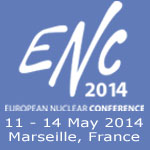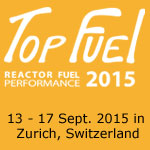
ENS NEWS N° 44: IntroHarnessing the power of emotion and advocacyMost of us, if we are honest, occasionally acknowledge a grudging admiration for some anti-nuclear activists. They devote their lives with undeniable industry and missionary zeal to the cause of ridding the world of nuclear power. They are driven by the unshakable conviction that their cause is just and in the wider interests of humanity. They are also very skilled at using emotional arguments to exploit people’s fears and anxieties, and at presenting their case as a cause. A good cause is more effective at harnessing emotions, claiming the moral high ground and persuading the undecided, than are more prosaic considerations like the security of supply, climate change and competitiveness credentials of nuclear energy. Attacking something is usually a more motivating and fulfilling experience than defending it. Unfortunately, many anti-nuclear activists seem oblivious to the factual inaccuracies, ideological posturing and unscientific reasoning that so often underpin the anti-nuclear thesis. The battle lines are familiar: the strength of conviction politics and emotional manipulation on the one hand, and the force of factual and scientific reasoning on the other. But such a view is too simplistic. Experts in communications and public perception analysis have stressed the need for the nuclear community to accept that emotions are part of the vernacular of the human condition and to learn how to use them more efficiently if they want to convince the doubters. Emotional arguments mobilise the inactive. They engage the uncommitted. They help win the hearts and minds of citizens much more easily than do scientific facts. This is an uncomfortable truth. If we choose to ignore it, then we are helping to maintain the status quo and reinforcing the impression some people have that the nuclear community is remote and out of touch with the mainstream of human feelings and motivations. Although we believe in nuclear energy with as much conviction as anti-nuclear activists oppose it, we don’t exhibit the missionary zeal that comes from having a sense of cause. Our limited experience of using emotion to reach out to people in support of our argument makes us appear passive and defensive. Some sceptics interpret defensiveness as indicative of something to hide. Modesty and restraint are over-rated virtues. We need to show greater self-assurance and conviction in the way we articulate the positive messages about nuclear; to appeal more to emotions when emphasising the vital contribution that it makes to quality of life and human health. It’s a case of being proactive, not reactive. The alternative is leaving the initiative with the anti-nuclear zealots. Another way of influencing the dialogue more positively is to mobilise the power of third party advocacy. There are many well-known, much-respected people from all walks of life that are pro-nuclear or have become so after originally being against it. Some have always been resolute advocates, while others support it for more practical and pragmatic reasons. Because they are not members of the nuclear community and speak from a purely personal perspective, their voice is objective and credible. For example, world famous businessmen and entrepreneurs who have no personal involvement with or allegiance to the nuclear industry, like Bill Gates and Richard Branson, have strongly advocated the economic and environmental benefits of nuclear energy. As admired and often iconic celebrities they are listened to and their opinions carry weight. But perhaps the most striking of all advocates are the growing number of environmentalists who have changed from being anti-nuclear activists to nuclear proponents. Theirs was no sudden conversion; no damascene moment. Instead, having experienced reality and been confronted with the facts, they have revised their opinions and come to the conclusion that there is no energy future for the planet without nuclear. The recently released film Pandora’s Promise, the work of the American film director Robert Stone, traces just such a personal journey of discovery undertaken by five environmentalists. Among them is Mark Lynas, a former Greenpeace activist who used to campaign against nuclear energy but has since radically changed his point of view and has written a number of books underlining the important contribution that nuclear makes to the fight against climate change. They include the recently published Why a green future needs nuclear power. So, perhaps the nuclear community could do more to recognise the reasons for its opponents’ success and take a leaf out of their book by adapting a communications strategy based on a better understanding of the human psyche, greater self-confidence and a more proactive approach. It’s time to go on the offensive. It’s time to take the initiative away from anti-nuclear brigade. They are not going to hand it to us on a plate.
|
||
Word from the PresidentLong-term operation in EuropeAt the European Nuclear Energy Forum (ENEF) in Prague, in May 2013, the European Commission presented long-term scenarios for the European energy mix. In some of these scenarios nuclear energy accounted for 20% of the EU’s electricity generation by 2050. |
||
RRFM 2014: French research team wins Poster PrizeThe annual RRFM (Research Reactor Fuel Management) conference took place this year in Ljubljana, the capital city of Slovenia, from 30 March to 3 April 2014. This flagship ENS technical conference brought together around 200 specialists in the field of nuclear research reactors to discuss a range of topics, including the fuel cycle of research reactors; safety and security priorities; the utilisation, operation and management of the reactors, new research reactor projects and the latest innovations related to reactor physics and thermo-hydraulics. |
||
ENC 2014The European Forum to discuss Nuclear Technology Issues, Opportunities & Challenges11 -14 May 2014, Marseille, France |
||
TopFuel 201513 - 17 September 2015 in Zurich, SwitzerlandMark your diary for TopFuel 2015!TopFuel is an annual topical meeting of nuclear fuel experts from around the world. It is the annual occasion to discuss the challenges facing the developers and manufacturers of new high-performance nuclear fuels – fuels that will help meet current and future energy demand and reduce man’s over dependence upon CO2-emitting fossil fuels. |


